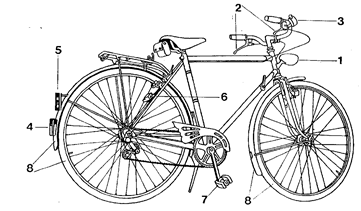From oath to agreement
"We stand here and join hands. One will, one goal unites us: We want to be free! In the deepest need we promise to help each other, to stand together in the fight against the bailiffs and not to bow to violence."
Admittedly, Stauffacher's words on the Rütli were spoken a long time ago and are unproven. But the idea behind them has lost none of its relevance.
When people meet, different values and different behaviors inevitably clash. Whether in sport, at work or in leisure time - norms, agreements and laws determine how people interact. The legal framework for marriage is set out in a contract, an organic farmer must strictly adhere to legal regulations if he wants to receive subsidies from the state, and even children and young people are subject to compulsory education and must adhere to school rules. These regulations and laws are necessary for orderly coexistence in a society.
Creating identification
All these externally determined conditions are imposed by an authority and can trigger a feeling of powerlessness. It is human nature to feel more comfortable when we can determine our own actions. This is also possible in smaller social groups. Provided that all members adhere to certain agreements made together and can identify with the group goals and agreements. In a small company, for example, this could mean that all employees opt for smoke-free workspaces. They make a joint "commitment". Commitment refers to the attitude and obligation one has towards a cause or an organization. It indicates the level of identification and commitment to a particular cause. In business, this term is a fixed value. It is a measure of the loyalty of employees and managers to the company. The higher the commitment, the more motivated they are to achieve the company's goals.
New management style
Commitments are therefore nothing fundamentally new. They are joint agreements on behavior, convictions and intentions. A married couple not only secures themselves legally by means of a contract. They also enter into a joint commitment to care for each other and to show their partner respect and humanity. A research team defines moral and ethical standards for itself, which it adheres to in its daily work. And the Federal Office of Sport launches the "Doping-free elite sport" project to involve athletes in the fight against doping. These are just three of many possible examples.
Commitments do not replace existing laws and rules, but rather supplement them. If they are to have a lasting effect, they must be entered into voluntarily and developed jointly. This often requires a new management style, as "prescribed agreements" are more demotivating than helpful. Managers, coaches and parents must therefore allow their employees, players and children to participate in the development of the agreement. They must have a say in deciding what behavior is desirable. This is the only way to achieve the necessary commitment and accountability to the agreed resolutions. It is important that the commitments made in a group are binding and are adhered to by everyone. It is therefore also important to consider what to do if agreements are broken.
Bad role models
Sport thrives on interaction with others and therefore offers many opportunities to gain experience in dealing with emotions. Opponents and teammates, fans and referees, rules and ambition bring emotions into the "game". Sport can unite people, bring them closer together and facilitate interpersonal contact. However, it is also where all social conflicts manifest themselves: excessive consumption of stimulants, use of illegal addictive and doping substances, exclusion of those who think differently, transgression of boundaries, sexual assault or unfair behavior. The spitting and lying affair at the European Football Championships, for example, clearly shows that when it comes to "the daily bread and butter", as in top-class sport, fairness is sometimes trampled underfoot. Lazy tricks and minor breaches of the rules are nothing unusual. On the contrary, they are often welcome and accepted for the sake of success. For example, the "Swallow King" cheats his way to the decisive penalty, the outfield player rolls around on the pitch with his face contorted in pain after a harmless foul and the goal scorer celebrates a goal scored irregularly with his hand. Here too, the end justifies the means.
Look instead of looking away!
We don't have to go as far as top-level sport to find such offenses. Every week on Swiss pitches, referees are verbally abused and opponents are attacked with unfair means. However, it is not only the players themselves who frequently display misconduct. Coaches and spectators also set a bad example. What do you do when opponents are seen as enemies and are maltreated with words and jostling? Accept it when the rules of the game and refereeing decisions are constantly being complained about? Watch when victories are celebrated with copious amounts of alcohol? Let's look instead of looking away! Commitments that are sensibly developed and supported by everyone can counteract this and contribute to a greater awareness of basic values, better acceptance and compliance with rules and a more positive approach to dealing with emotions.
Source reference:
Contents: Jugend+Sport, mobile 1, Dec. 2004, COMMITMENTS
Authors: Ralph Hunziker, Hans Ulrich Mutti, Anton Lehmann, Barbara Boucherin
copyright: www.mobile-sport.ch
Picture: www.juropa.net
Content may be automatically translated. Help improve the quality of the translation with your editing!



